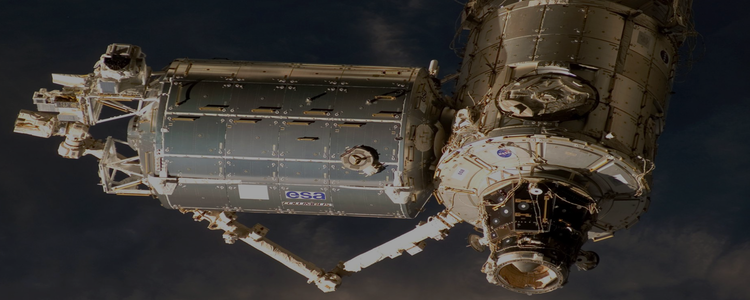Machine Learning for Spacecraft Health Mini-Workshop

Thursday, July 29 Schedule
| Time | Topic | Presenter |
|---|---|---|
| 10:00 AM | Introduction | Workshop Chairs |
| 10:40 AM | Operational Recommendations for Capturing History and Infusing Data Science (ORCHIDS) - Preparing your mission data for future analysis | Jack A. Lightholder |
| 11:00 AM | Machine Learning in Space Operations | Nikola Simidjievski |
Friday, July 30 Schedule
| Time | Topic | Presenter |
|---|---|---|
| 10:00 AM | Round Table Discussion | Nikola Simidjievski |
Overview
The rapid technological developments in space exploration missions yield massive amounts of complex heterogeneous scientific and housekeeping data (images, spectrometry, telemetry and others). In turn, these data are utilized for tackling two major types of challenges (1) data-to-discovery and (2) data-to-operations. The former relates to challenges such as modeling and forecasting space weather, mapping planet surfaces, galaxy profiling, identifying exoplanets and their environment, as well as analyzing astrobiology data. The latter refers to challenges that include autonomous spacecraft route planning, optimal spacecraft operations (forecasting and decision making), anomaly detection and diagnosis, mission planning as well as analysis of the spacecraft configuration flow. However, the available data challenge the existing data-to-discovery and, in particular data-to-operations, processes from different perspectives, in particular, proper robust and comprehensible data analysis.
The data-to-operations challenges are associated with a high-cost of failure. For instance, the remote spacecraft are equipped with batteries of decaying capacity, typically coupled with components (e.g., processors and memory) lagging decades behind the current state-of-the-art technology. Moreover, in case of an emergency, the reaction times between the experts issuing commands and the spacecraft reacting can be long. One of the most important and challenging data-to-operations tasks is estimating the current and predicting the future states (such as power consumption, thermal radiation, position etc.) of a spacecraft, therefore allowing for autonomous decisions and seamless operation.
Recent trends in machine learning, and in particular deep learning, leverage the rapid technological developments in computational hardware and high-throughput data. Their ability to address various data-intensive tasks without particular intermediate human-expert intervention, have ushered in a new era of data analysis, raising predictive performance in many application domains.
In the applications domain of human health, machine learning can offer innovative solutions. For instance, an ECG application identifies early warning signs of heart problems, allowing the clinician to make informed timely choices and may directly impact clinical decisions. Just as with monitoring human health, monitoring and predicting spacecraft health is an important yet non-trivial task. Spacecraft continually undergo multiple interactive dynamic processes which vary with time. Internal factors such as the interplay of subsystem components, external factors such as Solar illumination and proximity to a planet, as well as the spacecraft activity, whether communicating or taking scientific observations all influence the spacecraft status and health.
A spacecraft is a patient providing data about its health status; the interpretation of that data relies on human engineering experience. As spacecraft health data volumes continue to increase, engineering expertise augmented with machine learning will lead the way to constructive data analysis. Providing early warning signals and predictions, machine learning will enable engineers to make informed choices for preventative health actions. In this context, data analyses reliant on sophisticated machine learning approaches have proven to be a valuable asset for tackling the afore-mentioned data-to-operations challenges.
The theme of the mini workshop is positioned at the intersection of machine learning and space operations, focusing on the existing gap between these two communities. On the one hand, the focus of the machine learning community is typically on the side of designing accurate and efficient learning algorithms. However, in pursuit of accuracy, these research attempts shift the focus from interpretable results, and leave the needs of the front-line engineers and operators, whose very enterprise is founded on explanation, unmet. On the other hand, from an engineering perspective, there is often a misunderstanding of the data-analysis tasks which translates to doubt on one side and simultaneously unfounded expectations of the machine learning capabilities within the data-to-operations process.
The goal of this workshop is to offer a platform that will bring together these two communities. By fostering the interaction of these two expert groups, the workshop will present the potential of the recent machine learning methods in the context of spacecraft health monitoring and operations, and, more importantly, will highlight the overarching goals and challenges of analysing large volumes of spacecraft data. This workshop will be a seed for a new community, which will build on top of these interactions, will facilitate easier uptake of novel machine learning approaches and undoubtedly will advance the development of novel applications addressing various aspects of spacecraft health monitoring. Prevention is better than cure; the monitoring, early warnings and predictions of machine learning will provide new insights, leading to optimised operations and extending mission life.
The mini workshop program will consist of invited keynote talks and contributed talks. To have a talk at the workshop please contact us with details of your talk. These should outline recent work on new and relevant problems, concepts and ideas related to machine learning for spacecraft health. More importantly, we strongly encourage work that is at an early stage of development.
Organization:
Nikola Simidjievski, University of Cambridge, United Kingdom; Bias Variance Labs, Slovenia
Luke Lucas, Mars Express, Mission Planning & Spacecraft Operations, LSE Space GmbH, ESOC - European Space Operation Centre, Germany
Dragi Kocev, Jožef Stefan Institute, Slovenia; Bias Variance Labs, Slovenia.
Information
Time: 10:00 AM - 12:00 PM PDT
Location: Zoom
Contact: ai4spacecraft+SMCIT2021 AT gmail DOT com